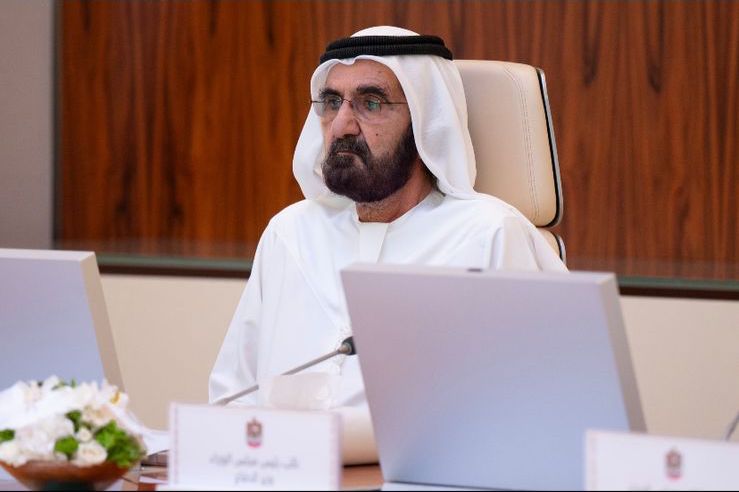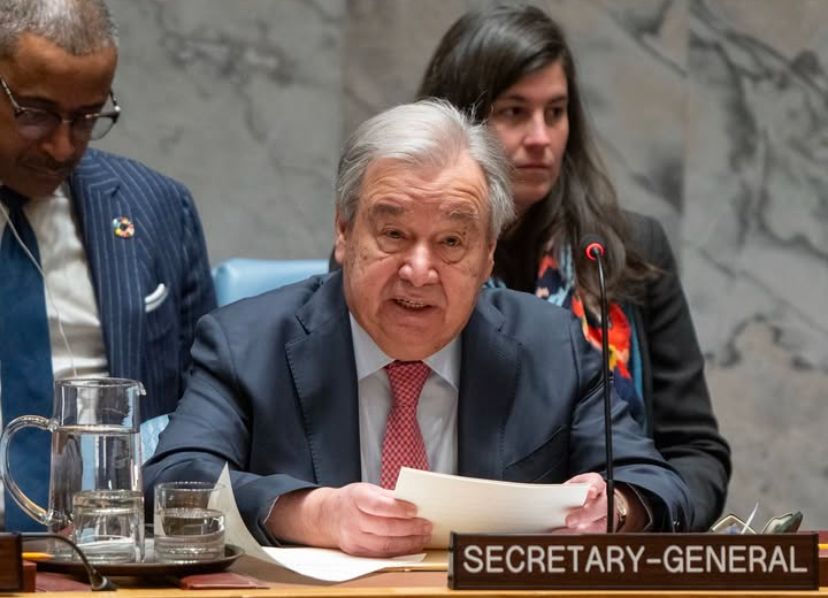UAE President Strengthens Ties with Qatar Through Landmark Doha Visit

When the President of the United Arab Emirates, Sheikh Mohamed bin Zayed Al Nahyan, arrived in Doha, it was more than just a state visit. It was a powerful signal of regional unity, resilience, and a renewed commitment to strengthening the bonds between the UAE and Qatar. The timing was especially significant, coming just a day after Israel carried out airstrikes in Doha that targeted leaders of Hamas. Sheikh Mohamed’s presence in Qatar emphasized the UAE’s dedication to fraternal relations, dialogue, and stability in a time of heightened tensions.
A Warm Welcome at Hamad International Airport
The Emir of Qatar, Sheikh Tamim bin Hamad Al Thani, personally welcomed Sheikh Mohamed and his high-level delegation at Hamad International Airport. This ceremonial gesture was more than protocol; it reflected Qatar’s acknowledgment of the UAE’s pivotal role in the Gulf and its willingness to deepen bilateral cooperation. Sheikh Jassim bin Hamad Al Thani, Personal Representative of the Emir, and Sheikh Mohammed bin Abdulrahman Al Thani, Prime Minister and Minister of Foreign Affairs, were also present, alongside senior ministers, sheikhs, and officials.
The red-carpet welcome was a symbolic reminder of the importance both nations attach to their partnership. While the visit was formally described as a “fraternal” one by the UAE’s state news agency, WAM, the deeper meaning lay in the unity it projected to the region and the wider world.
The Power of a Delegation Representing the UAE
Sheikh Mohamed was not alone in his journey to Doha. His visit carried weight because of the influential delegation that accompanied him, which included leaders from across the UAE’s defense, security, and economic sectors. Sheikh Hamdan bin Mohammed bin Rashid Al Maktoum, Crown Prince of Dubai and Minister of Defence, was part of the team, highlighting Dubai’s growing role in shaping regional partnerships. Sheikh Tahnoon bin Zayed Al Nahyan, Deputy Ruler of Abu Dhabi and National Security Adviser, added strategic depth to the delegation.
Other senior officials included Lt. General Sheikh Saif bin Zayed Al Nahyan, Deputy Prime
Minister and Minister of the Interior, and Sheikh Theyab bin Mohamed bin Zayed Al Nahyan, Deputy Chairman of the Presidential Court for Development and Fallen Heroes’ Affairs. Their presence underlined the comprehensive approach of the UAE, combining diplomacy, security, and socio-economic development in one cohesive mission.
UAE’s Fraternal Approach to Qatar Relations
By defining the visit as fraternal, Sheikh Mohamed sent a message that the UAE’s relationship with Qatar is built on shared history, culture, and values. This was not just a diplomatic meeting but an affirmation of family-like ties that transcend politics. Both countries, as key members of the Gulf Cooperation Council (GCC), have an intertwined destiny in terms of security, prosperity, and regional leadership.
The timing of this visit was also crucial. With regional tensions rising after the recent attacks in Doha, Sheikh Mohamed’s presence reinforced the UAE’s support for stability and peaceful dialogue. It also highlighted the UAE’s readiness to stand alongside its Gulf neighbors in moments of uncertainty.
A Broader Message to the Region and the World
Beyond the UAE-Qatar relationship, the visit carried symbolic weight for the broader Middle East. Sheikh Mohamed’s arrival in Doha was a signal that the UAE is committed to promoting cooperation and reconciliation at a time when conflict and instability are present in several parts of the region.
In the wake of Israel’s strikes in Doha, this trip conveyed the UAE’s willingness to engage constructively and offer a path of dialogue over division. By sending one of the region’s most respected leaders to Qatar, the UAE also demonstrated to the international community that Gulf states are capable of managing their affairs with dignity, unity, and foresight.
The Delegation’s Strategic Value for Regional Cooperation
Each member of Sheikh Mohamed’s delegation had a specific role that added value to the mission. From defense and security to economic development and advanced technologies, the visit was designed to showcase the UAE’s holistic vision of cooperation. Dr. Sultan bin Ahmed Al Jaber, Minister of Industry and Advanced Technology, underscored the UAE’s ambition to build future-focused industries that align with Qatar’s own economic diversification plans.
Meanwhile, Ali bin Hammad Al Shamsi, Secretary-General of the Supreme Council for National Security, brought expertise on regional stability and counterterrorism, issues that directly affect both Doha and Abu Dhabi. The combination of technical, strategic, and diplomatic expertise reflected the UAE’s forward-looking leadership style.
The Importance of Symbolism in Gulf Diplomacy
In Gulf politics, symbolism carries immense weight. Sheikh Mohamed’s visit, framed as fraternal, was not only about formal agreements or political outcomes. It was about presence, visibility, and reassurance. For the people of both nations, seeing their leaders together in Doha after years of shifting regional dynamics reaffirmed the spirit of solidarity.
This kind of diplomacy resonates across the Gulf, where personal ties between leaders often play a decisive role in shaping policy and cooperation. The warmth displayed at Hamad International Airport set the tone for deeper engagements that could follow.
Opportunities for Economic and Cultural Growth
While political stability remains the foundation, this visit also hinted at new opportunities in trade, investment, and culture. The UAE has been diversifying its economy, positioning itself as a hub for technology, finance, and renewable energy. Qatar, with its global influence in energy and its rising cultural footprint, is a natural partner in these efforts.
Collaborations in areas like sustainable energy, tourism, and advanced technologies are expected to benefit not only the two nations but also the broader GCC region. For the UAE, with its focus on Expo-driven innovation and Dubai’s role as a financial hub, a stronger partnership with Qatar enhances its vision of becoming a global connector.
Strengthening Security and Stability Together
Another major theme of the visit was security. With Sheikh Tahnoon and Sheikh Saif bin Zayed as part of the delegation, it was clear that discussions would touch on regional threats, intelligence sharing, and ways to maintain peace. The UAE has consistently emphasized the need for cooperation against extremism, terrorism, and external threats, and Qatar’s role in these efforts is pivotal.
By reinforcing security ties, both nations can ensure that their economic growth and regional influence remain protected from instability. This shared vision of stability further strengthens the GCC as a united bloc capable of addressing global challenges.
Building Bridges for the Future
Ultimately, Sheikh Mohamed’s visit to Doha was about building bridges for the future. In a world where conflicts often dominate the headlines, this fraternal meeting offered an alternative narrative of unity, respect, and collaboration. It highlighted how the UAE and Qatar, despite challenges in the past, are moving forward with a vision for a prosperous and stable Gulf.
For the UAE, this visit aligned perfectly with its broader foreign policy approach: fostering strong ties across the Middle East, supporting peace, and positioning itself as a key global partner.
A Visit That Defines Gulf Unity
The visit of Sheikh Mohamed bin Zayed Al Nahyan to Qatar will be remembered as a
landmark moment in Gulf diplomacy. It was a demonstration of leadership rooted in fraternity, respect, and foresight. By bringing a powerful delegation and meeting Qatar’s Emir in person, Sheikh Mohamed reinforced the idea that Gulf unity is not just a political necessity but a cultural and historical reality.
As the UAE continues to strengthen its position on the world stage, visits like this one remind the region and the world that cooperation is the cornerstone of lasting prosperity. The journey from Abu Dhabi to Doha was short in distance but monumental in meaning, paving the way for deeper ties between two nations that share a common destiny.







